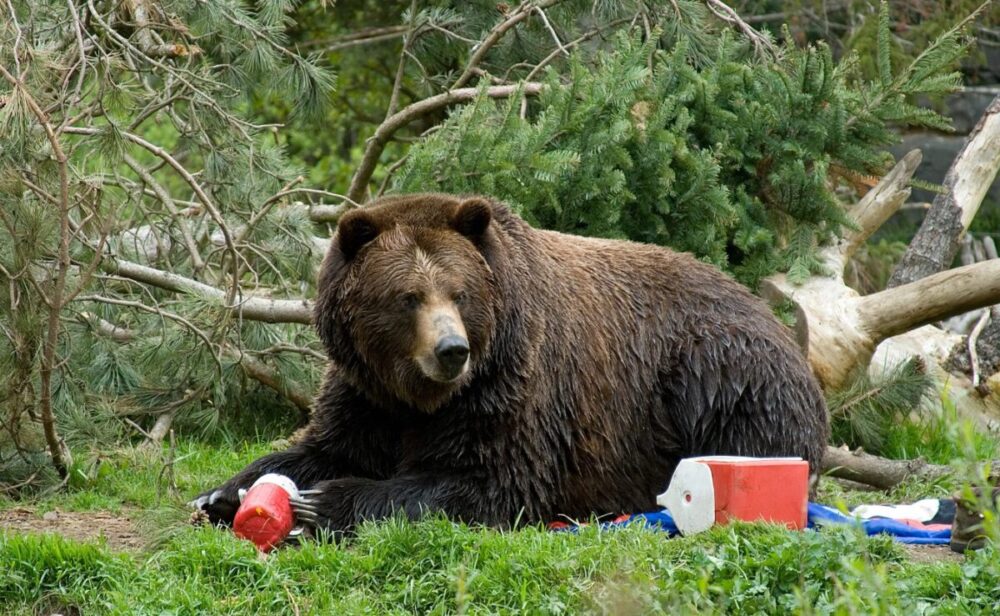Are you planning camping and worried about backpacking and safety? In this context, you must take preventive measures to protect your food from curious and hungry bears. It would help if you used proper storage and disposal techniques when you have food that is at risk from bears when they are active. Usually, when speaking of food, we talk about anything we can put on our skin or put into our mouths.
It would be best if you took caution to store your food securely overnight in your camp to keep bears away from your food. Fortunately, several methods are available to backpackers who wish to keep their food protected from animals, and choosing the correct manner can sometimes take time and effort. Bringing a bear-resistant container with you is the best way to ensure that you are prepared.
The Best Ways To Bear-Proof Your Backpacking & Camping Food
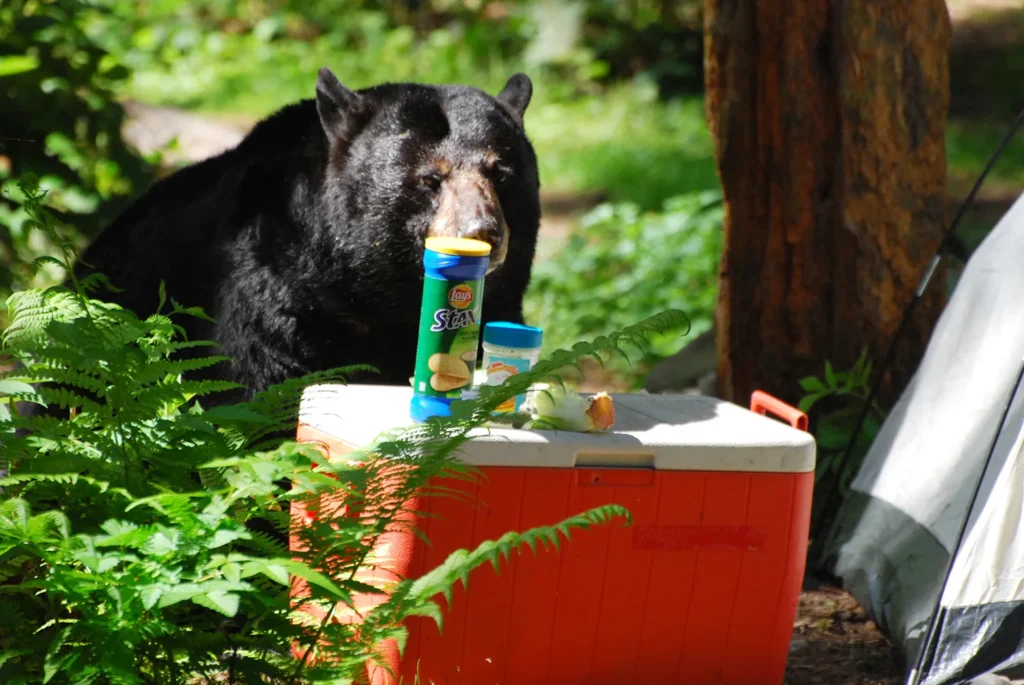
Source: coloradooutdoorsmag.com
In the early morning of a camping trip, nothing is more frustrating than finding out that all your food has disappeared. But, depending on your needs, you can stay at your favorite campground for a night or spend a few days in the woods. As campers, we ensure that the food we bring is safely stored from wild animals. Animals become more aggressive when they become too comfortable with humans because of food safety.
If you are camping, here are a few easy ways to keep your food safe from bears.
1. Finding The Right Campsite
If you decide to camp in an area where bears have recently been seen, check the area for signs of their presence. It could be a sign of fresh bear prints or signs of digging. When choosing a campsite, pick one that is far from berry patches and other natural food sources ideal for a bear.
Having the appropriate trees for bear bags is essential for hanging your food. It is crucial also to contact whoever runs the campground so that the latest bear warnings or sightings can be reached unless you are randomly camping without a campsite.
2. Make Use Of The Bear Bag
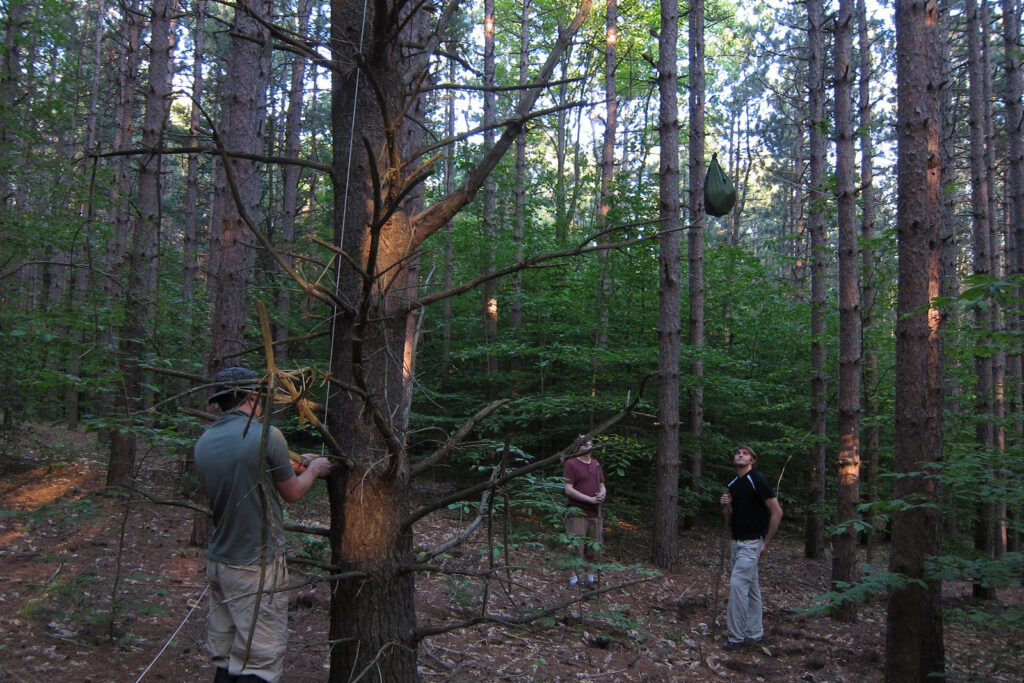
Source: gearjunkie.com
Some hikers consider hanging food from trees as an outdated method for keeping provisions safe, but it has long been a time-honored tradition among backpackers. Bear bagging is an excellent activity for budget-conscious hikers and people who prefer to trek in forested areas. An appropriately placed tree with sturdy branches is all you need to hang your loot, plus some rope and a sack. You can turn lots of food at once with bear bagging if you have a large group since it doesn’t take up much space in the canister.
There are areas where bear bagging is ineffective, such as the desert, alpine regions, or other zones where large trees are not abundant. Furthermore, some brave bears in areas with heavy hiker traffic have figured out how to use the bear bag trick and can fall even the strongest hang. Make sure you have a foolproof way of bagging bears if you plan to do so.
3. Take A Bear Canister With You
The bear canisters are plastic containers you can use to store food and other dangerous odorous items. Even though they aren’t precisely odor-proof (they are very close to it), they are bear-proof. It is an excellent quality plastic that animals cannot open without thumbs since it has a latch system, and the plastic is also strong enough to withstand the efforts of a curious bear.
In most national parks, you can check out a bear canister for free at a ranger station if you are interested in buying one of them, which is so lovely since bear canisters can be pretty expensive. If you’re camping in a bear-infested region, check whether a ranger station nearby allows you to rent bear canisters. If you are going backpacking anytime soon, you will need to have a bear canister on your backpacking gear checklist, no matter what kind of wilderness location you will be staying in.
4. Seeing A Bear Does Not Have To Be Scary
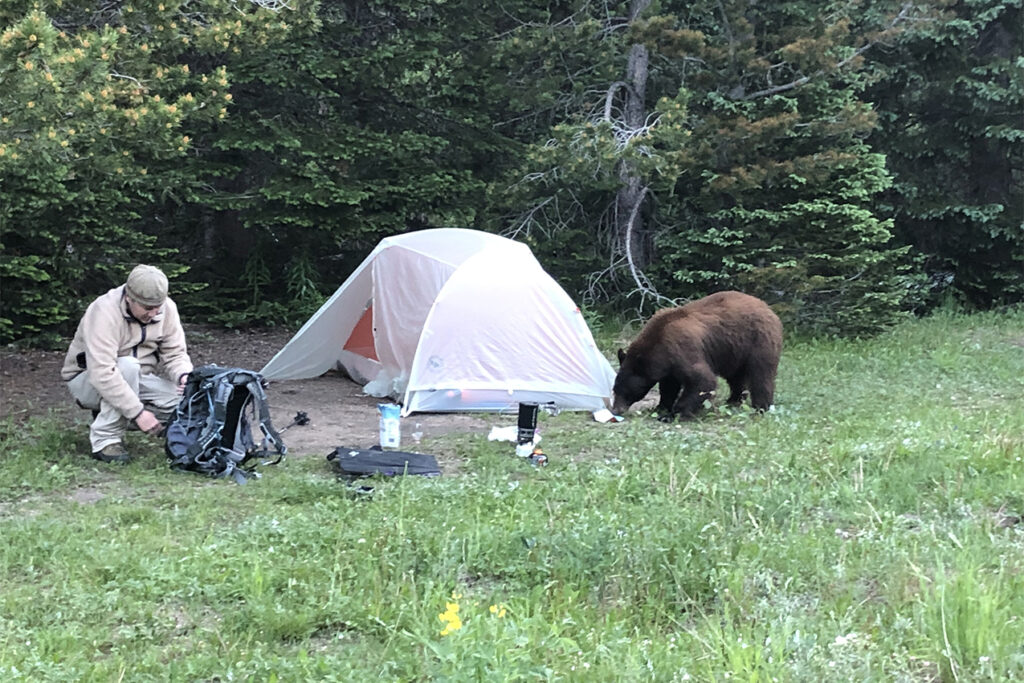
Source: go.campendium.com
The best thing you can do if you run into a bear is to do everything you can to avoid panicking, turning your heel, and fleeing as soon as possible. Likewise, the best thing you can do if you have sightings of a bear close to you is to remain as calm as possible.
Use your bear spray, and remain calm when you see the bear acting aggressively. When you encounter a bear, you will either find them curious, or they will warn you to keep your distance. Bears are rarely interested in fighting with people. The problem with panicking and running, however, is that you are sending things to the bear that might lead it to chase you if you panic and run.
5. After Cooking, Change Your Clothes
When you cook, you will have to deal with the odor left on your clothes due to the food you are cooking. It is also likely that you have brought the smell with you to your tent if you wear those same clothes in your tent. A bear usually does not realize you are inside a tent; if a bear smells food near a tent, it may stop by to look around.
To ensure that your sleeping area doesn’t smell after dinner is cooked, we recommend changing your sleeping clothes after preparing your dinner. To keep the odor from your day clothes contained, you can keep them in a closed pack. However, the food smell on your clothes could be more potent than you think, so you do not have to keep them anywhere unique.
6. Tents Should Not Contain Food Or Scented Items
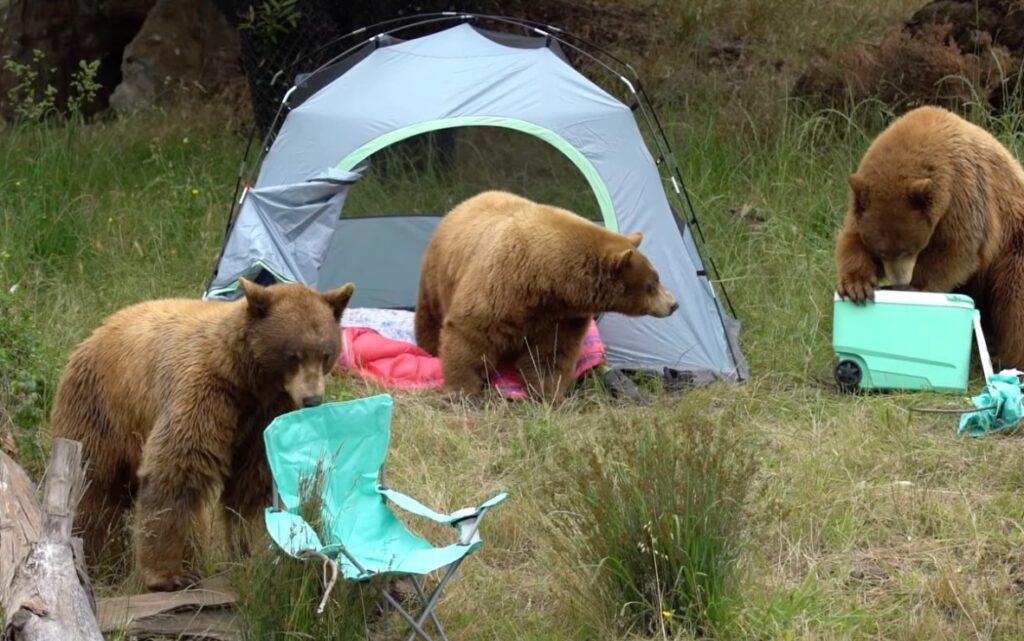
Source: unofficialnetworks.com
Camping in bear country is hazardous, so you must never have food inside your tent. Likewise, deodorant, perfume, and other scented products should be treated similarly. You have a very high chance of waking up in the middle of the night to a bear pawing at the walls of your tent if these items are kept in your tent.
It is generally recommended and allowed by park rules and recommendations that food should be kept at least 200 feet away from your tent overnight, depending on the local climate. In this manner, you can avoid the risk of a deadly confrontation with a nearby bear who wants to check out your food stash. In addition, you can guarantee that an encounter with a wild animal will turn into a nightmare if you keep food in your tent.
Conclusion
Put your food in a place that other people won’t find, and break the conditioning habit. For example, when hoisting food backpacks into a tree, use a tree that different people won’t use. Food should be stored in bear-proof containers approved by the government when bears are abundant in an area. Ground squirrels, mice, and other animals are not so different from bears, so what works for bears also works for them. This small species of animals, like bears, also learn where and how campers store their food and in which containers they do so.

